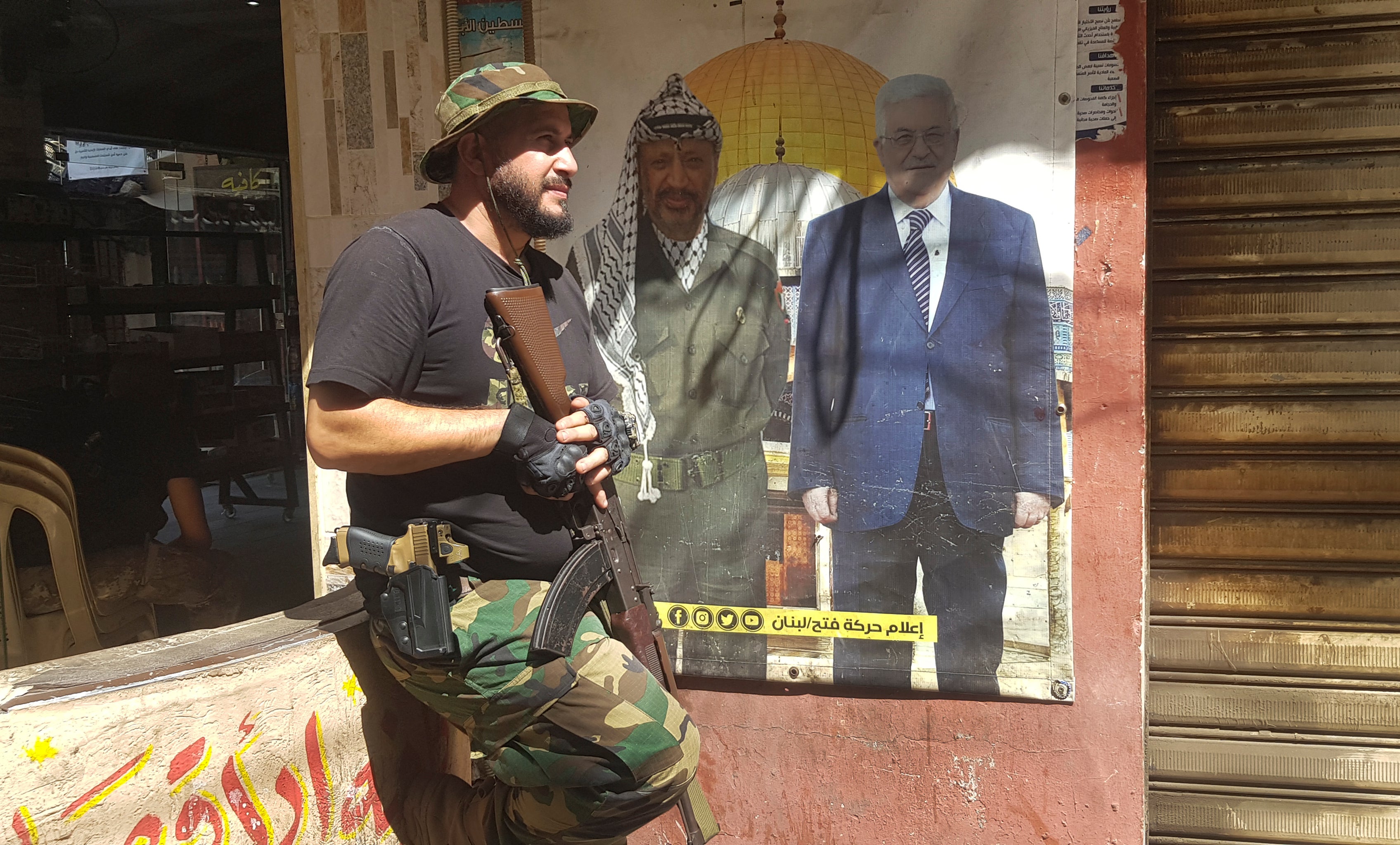Islamist factions in a troubled Palestinian refugee camp in Lebanon say they will honor a cease-fire
Islamist factions in Lebanon’s largest Palestinian refugee camp say they will abide by a cease-fire after three days of clashes killed at least five people and left hundreds of families displaced

Your support helps us to tell the story
From reproductive rights to climate change to Big Tech, The Independent is on the ground when the story is developing. Whether it's investigating the financials of Elon Musk's pro-Trump PAC or producing our latest documentary, 'The A Word', which shines a light on the American women fighting for reproductive rights, we know how important it is to parse out the facts from the messaging.
At such a critical moment in US history, we need reporters on the ground. Your donation allows us to keep sending journalists to speak to both sides of the story.
The Independent is trusted by Americans across the entire political spectrum. And unlike many other quality news outlets, we choose not to lock Americans out of our reporting and analysis with paywalls. We believe quality journalism should be available to everyone, paid for by those who can afford it.
Your support makes all the difference.Islamist factions in Lebanon’s largest Palestinian refugee camp said Sunday they will abide by a cease-fire after three days of clashes killed at least five people and left hundreds of families displaced.
Fighting between Palestinian President Mahmoud Abbas’ Fatah movement and Islamist groups has rocked southern Lebanon's Ein el-Hilweh refugee camp since Friday. Fatah and other factions in the camp had intended to crack down on suspects accused of killing one of their military generals in late July.
Besides the five killed, 52 others were wounded, Dr. Riad Abu Al-Einen, who heads the Al-Hamshari Hospital in Sidon that has received the casualties, told The Associated Press.
Ein el-Hilweh, home to some 55,000 people according to the United Nations, is notorious for its lawlessness and violence is not uncommon in the camp. It was established in 1948 to house Palestinians who were displaced when Israel was established.
Lebanese officials, security agencies and the United Nations have urged the warring factions to agree on a cease-fire. The interim chief of Lebanon’s General Security agency Elias al-Baysari said that he will attend a Monday meeting between Palestinian factions and urge the factions to reach a resolution.
The clashing factions in the camp said in a statement published Sunday by Lebanon’s state-run National News Agency that they planned to abide by a cease-fire.
UNRWA, the U.N. agency for Palestinian refugees, said hundreds of families displaced from the camp have taken shelter in nearby mosques, schools and the Sidon municipality building. The U.N. agency and local organizations are setting up additional shelters after Lebanon's prime minister and interior minister shut down an initiative by the municipality, the Lebanese Red Cross, and local community groups to set up a few dozen tents for families.
Palestinian Red Crescent paramedics set up stations at the camp's entrance to treat the wounded and provided food packages to displaced families.
Among the wounded was Sabine Al-Ahmad, 16, who fled the camp with her family. She was being treated for shrapnel wounds. “We were running away and a shell exploded over us,” she told the AP.
Several days of street battles in the Ein el-Hilweh camp between Fatah and members of the extremist Jund al-Sham group erupted earlier this summer that left 13 people dead and dozens wounded, and ended after an uneasy truce was put in place on Aug. 3. Those street battles forced hundreds to flee their homes.
However, clashes were widely expected to resume as the Islamist groups never handed over those accused of killing the Fatah general to the Lebanese judiciary, as demanded by a committee of Palestinian factions last month.
Lebanon is home to tens of thousands of Palestinian refugees and their descendants. Many live in the 12 refugee camps that are scattered around the small Mediterranean country.
___
Chehayeb reported from Beirut.